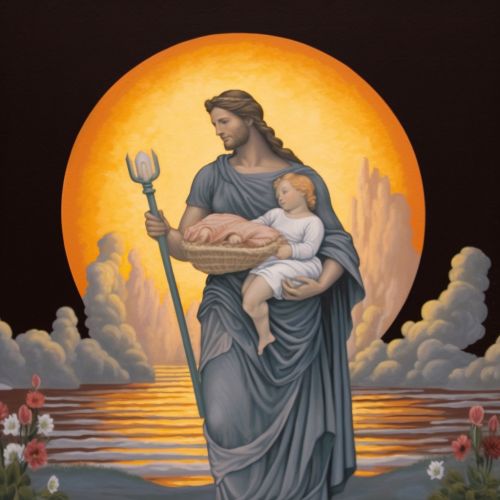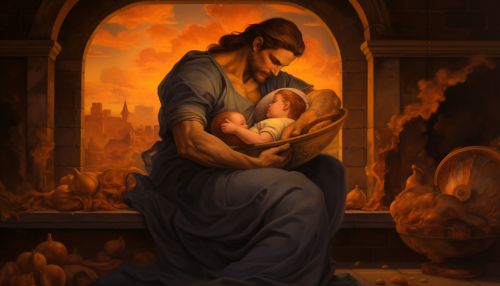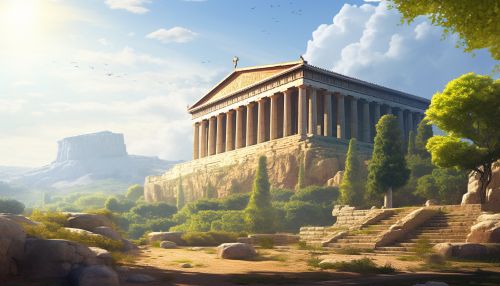Hephaestus
Origins and Birth
Hephaestus, the Greek god of fire, metalworking, stone masonry, forges and the art of sculpture, is a significant figure in Greek mythology. He is the son of Zeus, the king of the gods, and Hera, the queen. However, some myths suggest that Hera gave birth to him independently, out of resentment for Zeus's solo birth of Athena.


Physical Appearance and Disabilities
Hephaestus is often depicted as a bearded man holding a hammer and an anvil, the tools of a blacksmith. He is the only Greek god who is consistently portrayed as physically disabled: he is lame and has a deformed foot. This disability is attributed to either his mother, Hera, throwing him off Mount Olympus because of his deformity, or to Zeus throwing him off Mount Olympus as punishment for siding with Hera in a quarrel.
Role and Responsibilities
As the god of fire and forge, Hephaestus played a crucial role in Greek mythology. He was the divine blacksmith, creating all of the weapons and armor for the gods of Olympus. He also crafted beautiful jewelry and other items of exquisite craftsmanship. Hephaestus was also the patron of all craftsmen, particularly those working with metal. He was revered in many manufacturing and industrial centers in Greece, particularly Athens, where he had a significant cult and was one of the city's patron deities.
Hephaestus and the Gods
Hephaestus had a complex relationship with the other gods. Despite his physical deformity, he was married to Aphrodite, the goddess of love and beauty, in a political arrangement designed to prevent conflict among the other gods. However, Aphrodite was unfaithful to Hephaestus with Ares, the god of war, leading to a public scandal among the gods. Hephaestus also had a close relationship with Athena, the goddess of wisdom, with whom he shared patronage of human craftsmanship and invention.
Hephaestus in Mythology
Hephaestus features prominently in many myths. One of the most famous is the creation of Pandora, the first woman, whom Hephaestus molds from clay at the behest of Zeus. He also plays a key role in the Trojan War, crafting the armor of Achilles after the hero's original armor is taken by Hector. In another myth, Hephaestus traps his mother Hera in a magical throne as revenge for her cruelty towards him, and only releases her when Dionysus gets him drunk.
Worship and Cult of Hephaestus
The cult of Hephaestus was widespread in ancient Greece, particularly in industrial areas and cities with a strong tradition of craftsmanship. The most significant of these was Athens, where the god had a large temple and was celebrated in a major annual festival, the Chalkeia, where craftsmen presented their work in his honor. The Hephaesteia, another festival dedicated to Hephaestus, was also celebrated in Athens, and there were temples dedicated to him in other Greek cities, such as Lemnos and Thespiae.


Hephaestus in Art and Literature
Hephaestus is a popular subject in ancient Greek art and literature. He is often depicted in vase paintings and sculptures, usually at his forge or crafting weapons for the gods. In literature, he appears in many of the major works of Greek mythology, including Homer's Iliad and Odyssey, and Hesiod's Theogony. He is also a character in several plays by the ancient Greek playwrights, including Aristophanes' comedy The Birds and Euripides' tragedy Alcestis.
